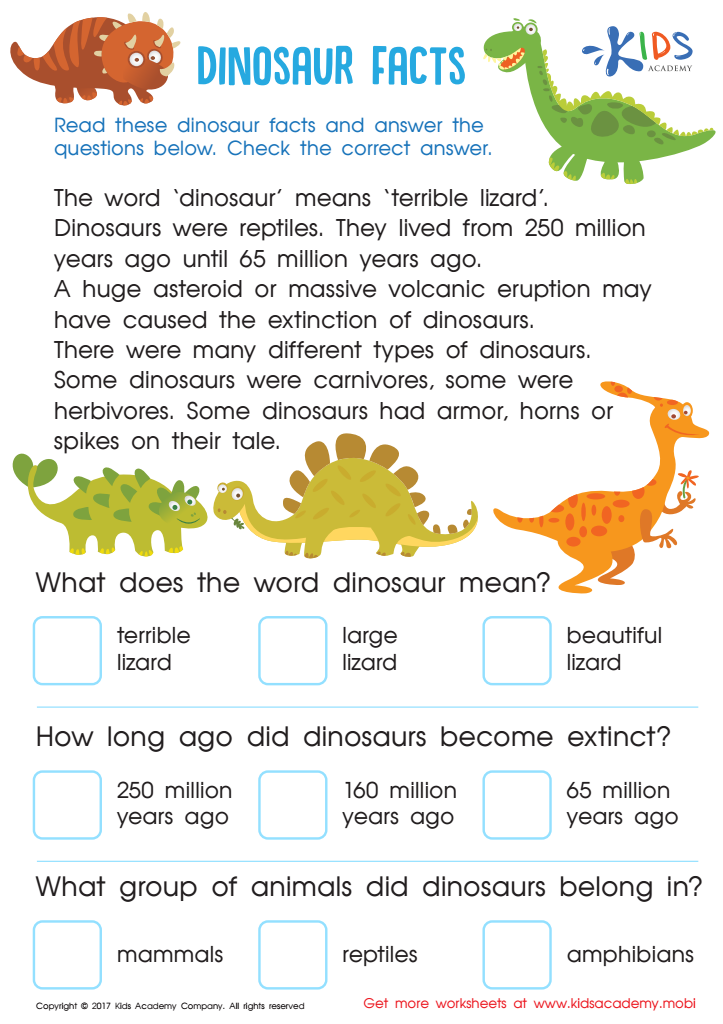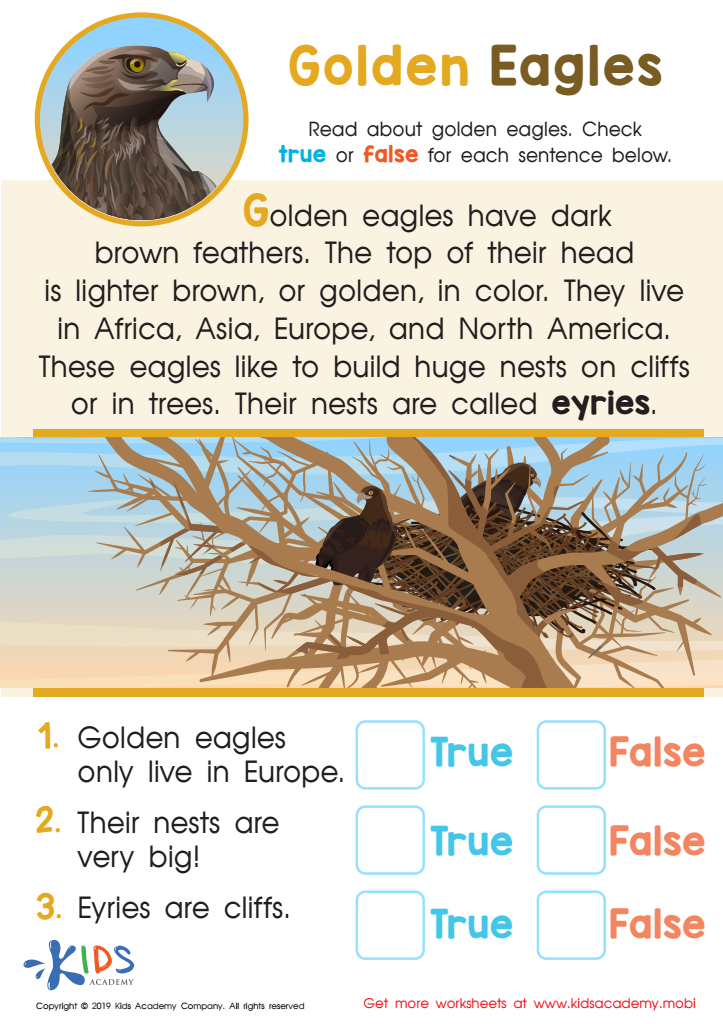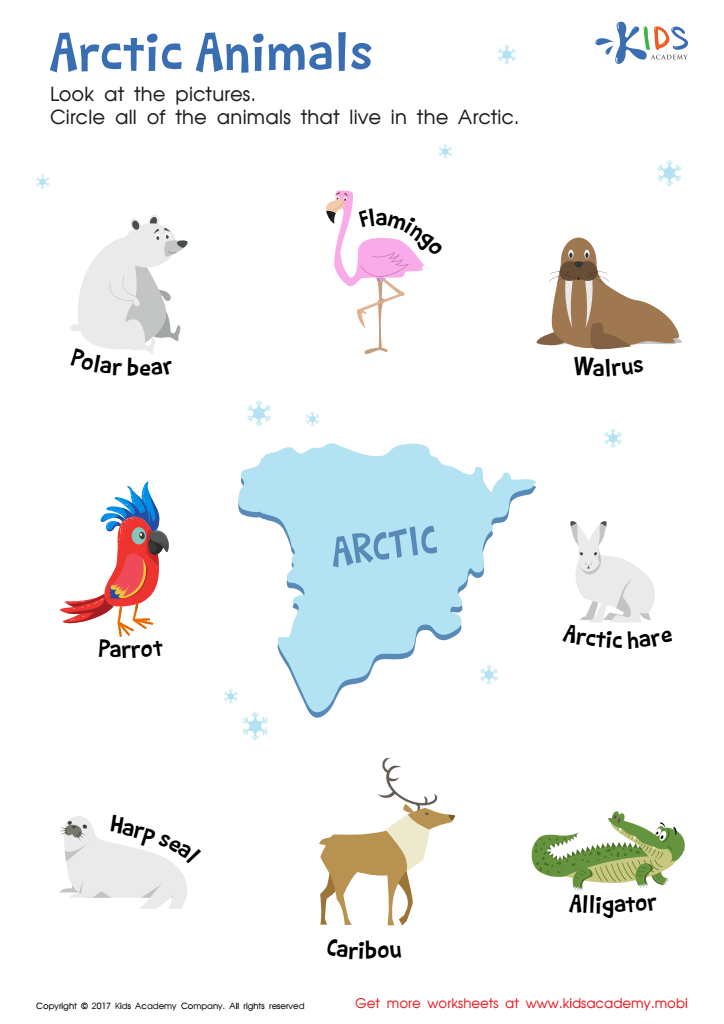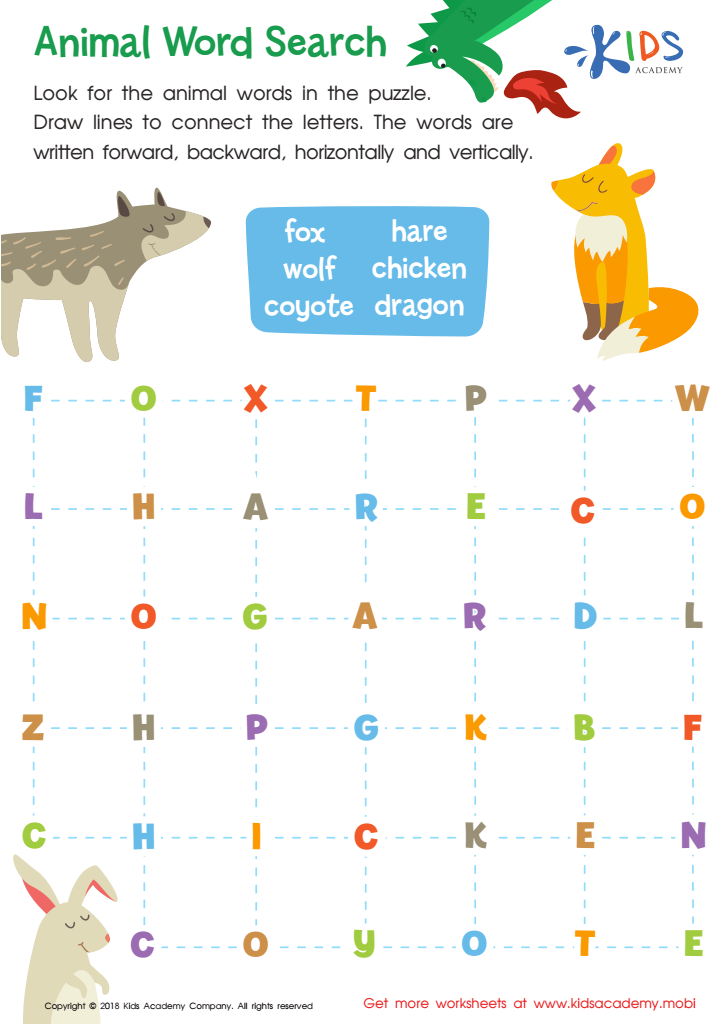Vocabulary Building Animals Worksheets for Ages 7-8
4 filtered results
-
From - To
Introducing our engaging "Vocabulary Building Animals Worksheets" for children aged 7-8! These interactive worksheets are designed to enhance vocabulary through exciting animal-related activities. With age-appropriate exercises, kids will learn new words while exploring fascinating facts about various animals. From matching terms to pictures, to fill-in-the-blank challenges, each worksheet promotes critical thinking and language skills. Perfect for teachers and parents alike, these resources make learning fun and effective, fostering a love for language and science. Boost your child's vocabulary and curiosity about the animal kingdom with these expertly crafted educational worksheets, available for seamless online access and printing!


Dinosaur Facts Worksheet


Golden Eagles Worksheet


Arctic Animals Worksheet


Animal Word Search Worksheet
Vocabulary building is essential for children aged 7-8 as it significantly impacts their reading comprehension, communication skills, and overall academic success. At this age, children are transitioning from learning to read to reading to learn. A strong vocabulary helps them decode texts more effectively and enhances their understanding of various subjects.
Incorporating animal-themed vocabulary can captivate young learners and make the process enjoyable. Animals are often relatable and stimulating for children, allowing them to engage with new words in a creative context. For example, discussing endangered species can spark conversations about ecology, fostering both vocabulary growth and environmental awareness.
Moreover, a robust vocabulary enhances critical thinking and expression. Children equipped with diverse language are better able to articulate their thoughts and feelings, consider multiple perspectives, and engage in meaningful discussions. This foundation not only supports their academic endeavors but also prepares them for effective interpersonal communication.
Parents and teachers play a pivotal role in promoting vocabulary development by integrating animal-related terminology in lessons, reading materials, and everyday conversations. In doing so, they help nurture curious, articulate, and thoughtful individuals, better prepared for the complexities of both their academic journeys and the world around them.
 Assign to My Students
Assign to My Students



















